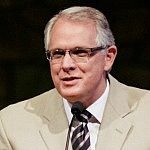Quotes about Sin-Denial
Man, in his own wisdom, has developed a vast number of philosophies and theories seeking to explain one’s thoughts, words, and actions. In doing so, man has pridefully sought to deny his own sinfulness and has confused any clear definition of God’s standards of right and wrong.
Self-Confrontation Manual, Lesson 4, Page 1, Used by Permission of the Biblical Counseling Foundation.
Sin is still here. It is just that people do not so willingly acknowledge that fact. A spade is no longer called a spade, but some euphemism. The little boy says to his mother, “Why is it whenever I do anything bad, it’s because I’m a bad boy; but whenever you do anything bad, it’s because you’re nervous?” It is nerves rather than sin. It is our glands rather than sin. It is what we eat, the environment, our biorhythm, rather than sin, it is anything but sin. Sin denies that it is sin.
The only thing that has happened to sin is that people now, rather than affirming it by affirming it, prefer to affirm it by denying it… When they call me a sinner because I ought to know better than to affirm sin, they are themselves affirming sin. Though sinning itself is bad enough, denying sin is an additional sin, so that those who deny sin are actually double sinners.
The overwhelming recognition of human sin controls the Old Testament and the New Testament alike, and no understanding of our Lord’s words and actions is possible if we persist in denying it.
A ministry which is weak and flabby on the subject of sin is a useless ministry. A preaching ministry that does not result in conviction of sin is useless. If it does not wound, how can it heal? The good news is only for sinners.
[Satan] wants us to laugh at sin rather than mourn over it, and to rationalize it rather than confess it and bring it to the Lord for forgiveness. He seduces us to become so used to sin in us and around us that it no longer bothers our conscience.
In all of the laments and reproaches made by our seers and prophets, one misses any mention of “sin,” a word which used to be a veritable watchword of prophets. It was a word once in everybody’s mind, but now rarely if ever heard. Does that mean that no sin is involved in all our troubles – sin with an “I” in the middle? Is no one any longer guilty of anything? Guilty perhaps of a sin that could be repented and repaired or atoned for? Is it only that someone may be stupid or sick or criminal – or asleep? Wrong things are being done… But is no one responsible, no one answerable for these acts? Anxiety and depression we all acknowledge; and even vague guilt feelings; but has no one committed any sin?
He that has slight thoughts of sin never had great thoughts of God.
[T]he sober truth is that without a full disclosure on sin, the gospel of grace becomes impertinent, unnecessary, and finally uninteresting.
Not the Way it’s Supposed to Be: A Breviary of Sin, Eerdmans, www.eerdmans.com, 1995, p. 199.
[One’s] disposition toward a behavior does not mean justification for that behavior. “That’s the way he is” doesn’t mean “that’s how he should act.”
Taken from Counter Culture, Copyright © 2015 by David Platt. Used by permission. Website: Radical.net. Page 168.
Every part of the world bears testimony to the fact that sin is the universal disease of all mankind… If the inhabitants have known nothing else, they have always known how to sin! Everywhere the human heart is naturally “deceitful above all things, and desperately wicked” (Jer. 17:9).
There is a remedy revealed for man’s need, as wide and broad and deep as man’s disease. We need not be afraid to look at sin, and study its nature, origin, power, extent, and vileness, if we only look at the same time at the almighty medicine provided for us in the salvation that is in Jesus Christ. Though sin has abounded, grace has much more abounded.
A sin is two sins when it is defended.
A Puritan Golden Treasury, compiled by I.D.E. Thomas, by permission of Banner of Truth, Carlisle, PA. 2000, p. 101.
When we deal seriously with our sin, God will deal gently with us.
What once bothered us doesn’t bother us anymore. What once activated our conscience doesn’t seem to anymore. What we knew was outside of God’s boundaries, and therefore functionally outside of ours, lives inside our boundaries, and it doesn’t matter to us anymore. It is a scary place to be. The hard heart is a stony heart. It is not malleable anymore. It’s hard and resistant to change, no longer tender and responsive to the squeeze of the hands of the Spirit. There is evil in our hearts and in the acts of our hands, and we’re okay with it. Could there be a more dangerous place for a believer to be?
Joints and Ligaments by Paul David Tripp taken from Dangerous Calling by Paul David Tripp, copyright 2012, Crossway Books, a division of Good News Publishers, Wheaton Illinois 60187, www.crosswaybooks.org, p. 72.
The sin that nobody deals with is the sin that everybody deals with.
If the knowledge of sin crushes, it crushes pride, not our selves.
Blame in on the Brain? P&R Publishing, 1998, p. 123. Get this book!
“Sinner” is a present-tense description of everyone, including those who have put their faith in Christ. Of course, those who have called Jesus “Lord” are justified, meaning that they are no longer guilty. Also, they have been given the Spirit, which makes them slaves to Christ rather than to sin. But we all are sinners. Perfection awaits eternity.
When People are Big and God is Small, P&R Publishing, 1997, p. 150. Used by Permission. Get this book!
When we see sin, we are close to the light. Only when we don’t see sin should we be suspicious of our hearts [1 Jn. 1:8].
Talk About Sin by Edward Welch taken from Caring for One Another by Edward Welch, copyright 2018, Crossway Books, a division of Good News Publishers, Wheaton Illinois 60187, www.crosswaybooks.org. Page 61.
The moment we imagine that we have exhaustively assessed the sin of our hearts, we have planted, watered, and harvested a crop of pride.
















